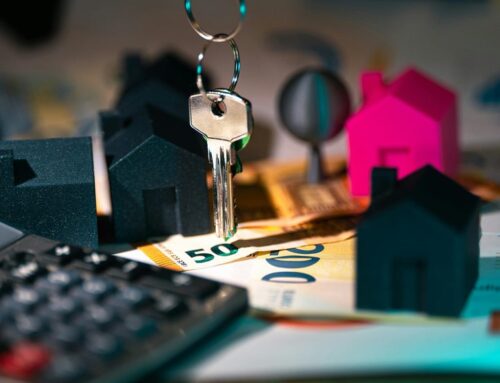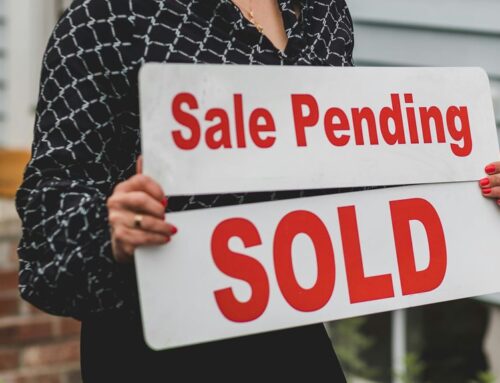Avoiding scams when selling your house fast can come with hidden traps. You might think you’re making a quick sale, but without proper caution, you could find yourself ensnared in a scam. It’s crucial to know the common pitfalls and how to spot them before it’s too late. How do you guarantee you’re not just another victim in the real estate game? Understanding key steps can protect your interests and help you navigate this process safely.
Understand Common Scams
When selling your house fast, it’s crucial to recognize the common scams that could jeopardize your sale and finances.
One prevalent scam is the ’phantom buyer’ scheme, where a supposed buyer expresses interest but never follows through, wasting your time.
Another is the ’overpayment scam,’ where a buyer sends a check for more than the sale price, asking you to refund the difference—only for the initial check to bounce later.
You should also be wary of ’for sale by owner’ listings that promise quick cash but end up being fraudulent.
Always verify any potential buyer’s identity and avoid sharing personal information before confirming legitimacy.
Protect Yourself While Selling Your Home! Selling your house fast doesn’t have to come with risks. Learn how to identify scams and ensure a safe selling process. At Cash4Houses, we prioritize your peace of mind by providing transparent, fair cash offers without any hidden agendas.
Don’t take chances! Contact us today for a trustworthy cash offer and a secure selling experience.
Research Potential Buyers
When selling your house fast, it’s vital to research potential buyers thoroughly.
Start by verifying their credentials, checking their online presence, and evaluating their financial stability.
This will help you avoid scams and guarantee you’re dealing with legitimate buyers.
Verify Buyer Credentials
Before moving forward, you should thoroughly research potential buyers to guarantee they have got the necessary credentials and financial stability.
Start by asking for proof of funds; this could be a bank statement or a letter from their lender showing they can afford your asking price.
Verify their identity by requesting a copy of their driver’s license or another form of identification.
It’s also wise to check their creditworthiness by having them share a recent credit report.
If they’re working with a real estate agent, ask for their agent’s details to confirm they’re legitimate.
Taking these steps will help you avoid scams and ensure that you’re dealing with serious buyers, ultimately making your selling process smoother and more secure.
Check Online Presence
Researching a potential buyer’s online presence can reveal important insights about their credibility and intentions.
Start by checking social media profiles, as these can showcase their personality and values. A professional presence on platforms like LinkedIn indicates seriousness, while red flags like negative comments or scams can be concerning.
Google their name to see what pops up; any past complaints or legal issues could signal trouble. Don’t forget to look for online reviews if they’re associated with a business.
Engaging with their online content can also provide clues about their motivations.
Assess Financial Stability
To guarantee a smooth transaction, it’s crucial to assess a potential buyer’s financial stability by requesting proof of funds or a pre-approval letter from their lender. This step helps you confirm that the buyer can afford your home, reducing the risk of future complications.
If a buyer hesitates to provide this information, it could be a red flag. Look for buyers who are willing to share their financial documentation upfront. Additionally, consider researching their financial background and creditworthiness. You can also ask for references from their previous transactions.
Verify Credentials and Licenses
Verify the credentials and licenses of any real estate agents or companies you consider working with to confirm you’re dealing with reputable professionals.
It’s essential to guarantee they’ve valid licenses and a solid track record. Here’s what to look for:
- State Licensing: Check if they hold a license from your state’s real estate commission.
- Experience: Look for agents with a proven history in selling homes quickly.
- Reviews and References: Read online reviews and ask for client references to gauge their reputation.
- Professional Affiliations: Verify if they’re members of recognized real estate organizations.
Taking these steps helps you avoid scams and guarantees a smoother selling process.
Don’t rush; doing your homework pays off!
Be Wary of Unsolicited Offers
When you receive unsolicited offers for your home, it’s essential to stay alert.
Look out for red flags and always verify the buyer’s credentials before moving forward.
Trust your instincts; if something feels off, it probably is.
Recognize Red Flags
Unsolicited offers can often signal potential scams, so it’s important to approach them with caution. You might be tempted by a quick sale, but look out for these red flags:
- Offers that seem too good to be true
- Buyers who rush you to make a decision
- Lack of details about the buyer or their financing
- Pressure to avoid using a real estate agent
These warning signs can indicate that the offer isn’t legitimate.
Always trust your instincts; if something feels off, it probably is.
Take your time, do your research, and consult professionals before proceeding.
Protecting yourself from scams is vital when selling your home, so stay vigilant!
Verify Buyer Credentials
Before moving forward with an offer, always check the buyer’s credentials to confirm they’re legitimate and trustworthy.
Unsolicited offers can be tempting, but they often come from individuals or companies looking to take advantage of desperate sellers.
Start by verifying their identity; and request proof of funds, such as a bank statement or pre-approval letter.
Don’t hesitate to ask for references or testimonials from previous transactions.
If they’re a company, research their reputation online. Look for reviews and any potential complaints.
Finally, verify they have a valid real estate license if applicable.
Protect yourself by being thorough; it’s better to take your time than to rush into a deal that could lead to significant losses.
Trust Your Instincts
Trust your instincts, as gut feelings often signal when an offer seems too good to be true. Unsolicited offers can be tempting, but they might hide potential scams. Always be cautious and analyze the situation thoroughly.
Here are some signs to watch for:
- Pressure Tactics: If they rush you into a decision, take a step back.
- Vague Details: Be wary of offers lacking specifics about the process or terms.
- Too High Offers: If the price exceeds market value without justification, question it.
- Lack of Transparency: If they avoid questions or provide unclear information, trust your gut.
Trusting your instincts can save you from falling victim to scams, ensuring a smoother selling experience.
Trust Your Instincts
Sometimes, your gut feeling can be your best guide when steering through potential scams in the home-selling process. If something feels off during negotiations or a conversation with a buyer, don’t ignore that instinct.
Pay attention to red flags, like vague offers or pressure tactics. Trust your intuition when evaluating potential buyers; if they seem overly enthusiastic or make promises that sound too good to be true, take a step back.
Trust yourself to ask questions and do your research. It’s okay to take your time and seek a second opinion if you feel uncertain.
Read Contracts Carefully
Reading contracts carefully is essential, as even minor details can greatly impact your sales and expose you to potential scams. You need to guarantee you fully understand all terms and conditions before signing anything.
Here are some key points to watch out for:
- Hidden Fees: Look for extra charges that may not be immediately apparent.
- Contingencies: Be aware of conditions that could affect the sale.
- Closing Dates: Confirm that the timeline aligns with your expectations.
- Legal Jargon: Don’t hesitate to ask for clarification on any confusing terms.
Taking the time to review every aspect of the contract can save you from costly mistakes and protect your interests.
Don’t rush—your home sale deserves careful consideration.
Use Secure Payment Methods
Always use secure payment methods to protect yourself from potential fraud when selling your house fast.
Rely on options like bank transfers, certified checks, or escrow accounts, which provide added security compared to cash or personal checks.
These methods help guarantee that funds are verified and secured before you hand over the keys.
Avoid accepting payments through platforms that lack buyer protection, as they can expose you to scams.
Always verify the buyer’s identity and confirm that the payment has cleared before proceeding with the sale.
Trust your instincts—if something feels off, don’t hesitate to walk away.
Protecting your financial interests is key in any real estate transaction, especially when time is of the essence.
Consult a Real Estate Professional
Consulting a real estate professional can provide invaluable guidance and help you navigate the complexities of selling your house quickly while avoiding potential scams. They’ve got the expertise to spot red flags that you might miss.
Here are some key benefits of working with a professional:
- Market Insight: They understand current market trends and can price your home competitively.
- Networking: They’ve access to a network of potential buyers and other professionals that can streamline the process.
- Negotiation Skills: They can negotiate on your behalf, ensuring you get a fair deal.
- Documentation Assistance: They’ll help you prepare and review contracts, minimizing the risk of errors or misunderstandings.
Report Suspected Fraud
If you notice any suspicious activity or offers that seem too good to be true while selling your house, it’s important to report suspected fraud immediately.
Start by documenting all details, including names, addresses, and any communication you’ve had. This information will be vital for authorities.
Contact your local consumer protection agency or the Federal Trade Commission (FTC) to file a report. They’ll guide you through the process and help assess the situation.
You should also inform your real estate agent, who can provide additional support.
Don’t forget to alert your bank or financial institution if you suspect any fraudulent transactions.
Acting quickly can help prevent further issues and protect others from falling victim.
Stay vigilant!
Conclusion
As you navigate the fast-paced world of selling your house, picture yourself standing at a crossroads, where caution lights flicker in the distance.
By staying vigilant and trusting your instincts, you can sidestep the pitfalls of scams.
Imagine sealing the deal with peace of mind, knowing you’ve protected your investment.
Each step you take—verifying buyers, using secure payments—builds a fortress around your sale.
With careful thought and a watchful eye, you can turn your property into a safe haven for new memories.
Frequently Asked Questions
How Can I Identify a Legitimate Cash Buyer?
To identify a legitimate cash buyer, you should check their proof of funds, verify their identity, and look for online reviews. Trust your instincts; if something feels off, it probably is.
What Red Flags Should I Look for in Buyer Communications?
In buyer communications, watch for vague language, pressure tactics, or reluctance to provide details. If they avoid questions, rush you, or lack a professional email address, those are significant red flags you shouldn’t ignore.
Are There Specific Signs That Indicate a Scam?
When identifying potential scams, look for unusual payment methods, pressure tactics, or vague buyer identities. If something feels off or too good to be true, trust your instincts and dig deeper before proceeding.
How Can I Protect My Personal Information During the Sale?
To protect your personal information during the sale, limit what you share online, use secure communication channels, and vet potential buyers thoroughly. Always be cautious with sensitive documents, and avoid sharing details until you’re sure.
What Should I Do if I Suspect a Scam?
If you suspect a scam, trust your instincts. Gather any evidence, document everything, and report it to local authorities or the relevant agency. Stay vigilant and protect yourself by verifying any information before taking further action.











